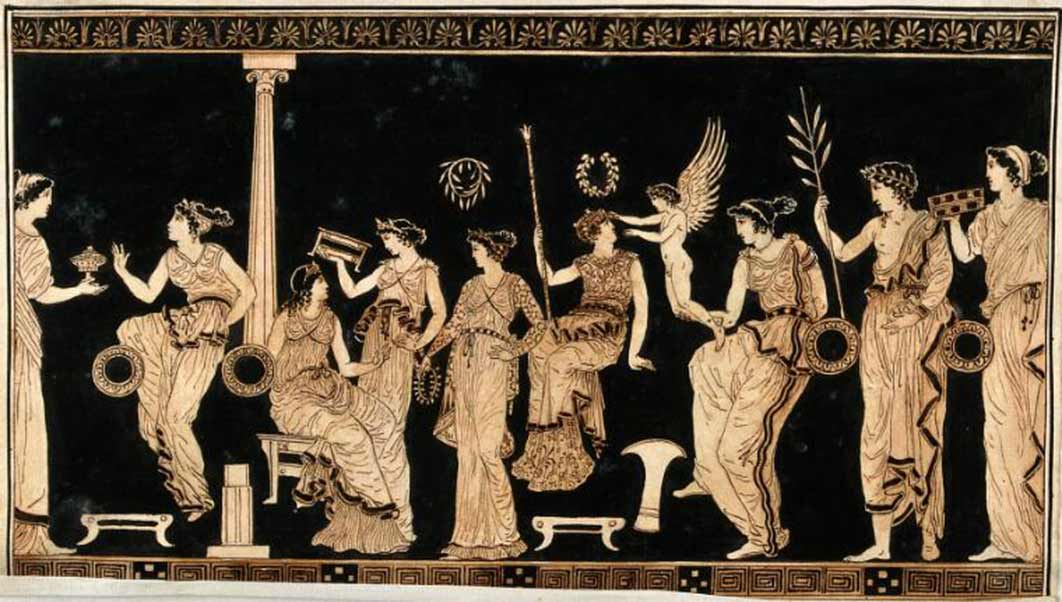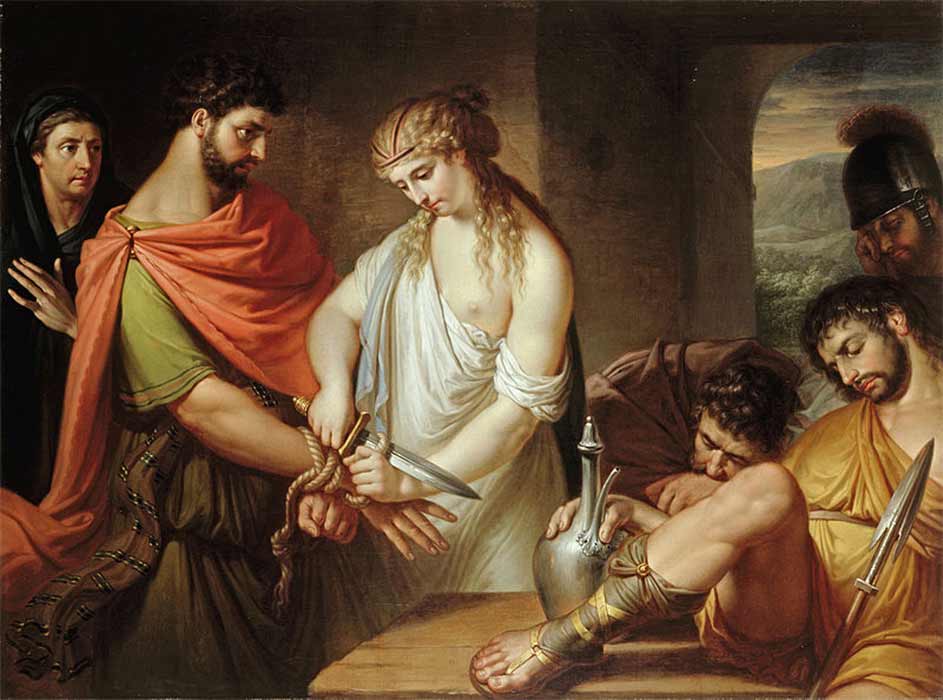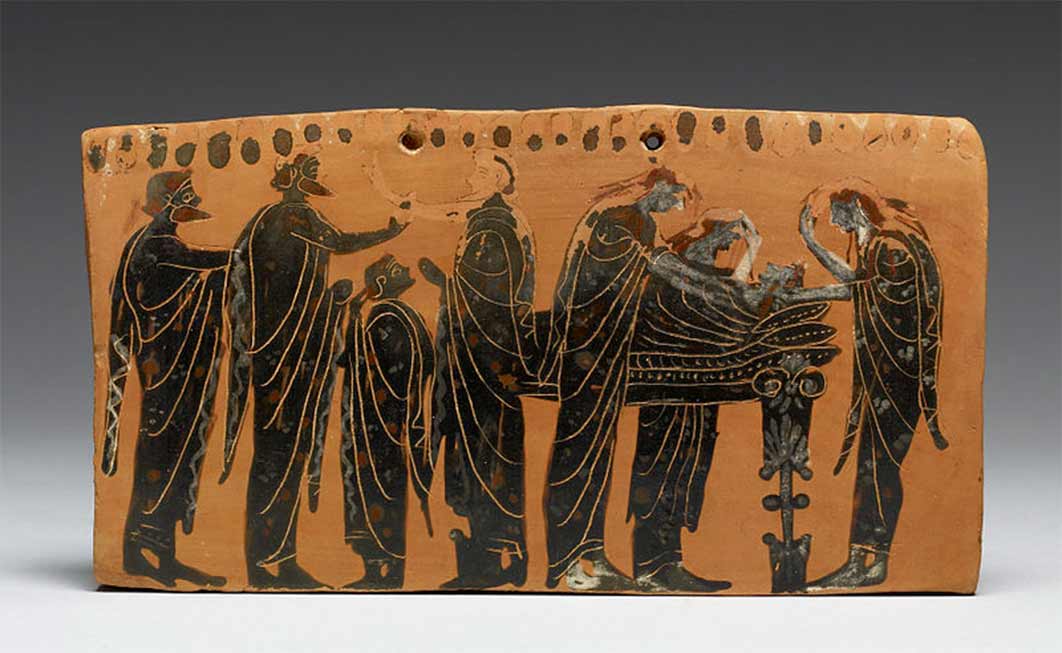
Fatally Disrupting The Thesmophoria: The Savagery Of Greece’s Citizen Wives
A dominant paradigm of ancient Greece was turned on its head when subjugated women were made autonomous by participating in a feminine fertility festival known as the Thesmophoria. Devoted to human as well as crop fertility, the Thesmophoria ushered in the sowing season and was one of the most prominent and widespread of all Greek religious festivals. In fact, many believe its universality in the Greek world was testament to its prehistoric origins—a time before patriarchal marriage became the law of the land. Membership was restricted to citizen wives; no maidens, female metics nor slaves were allowed.

Aspasia on the Pnyx by Henry Holiday (1839–1927) (Public Domain)
Depending on the polis, citizen wives left their homes and families for anywhere from three to ten days (and nights) to participate in this festival honoring Demeter, goddess of the harvest, and her daughter, Persephone, queen of the Underworld. Meeting outside the social constructs of marriage, the Thesmophoria evoked a time when women led autonomous lives—without male restrictions. In a society where men set the rules, a community of empowered women that challenged men’s authority struck fear in their hearts but nowhere was this male fear more evident than in the stories about the savagery of the Thesmophoria’s citizen wives. Because men were forbidden—to the point of death—from attending or witnessing any portion of this all-female festival, the Thesmophoria was notorious for its undercurrent of ferocity towards them. Stories abound about men who were subject to life-threatening and disfiguring acts of violence perpetrated by the citizen wives when they spied on or interrupted their festival in any way.
Mighty Aristomenes Saved By His Girlfriend
Drawn from ancient sources, some noteworthy examples of the violence of the citizen wives include the following. First there is the tale of the legendary Messenian hero, Aristomenes (ca 720-648 BC), celebrated for his triumphs against the fearsome Spartans. Unfortunately for him, he did not fare as well against the well-bred ladies of the Thesmophoria. According to Pausanias (110 -180 AD), while during their clandestine celebration, the citizen wives were taken hostage in Demeter’s temple by Aristomenes and his fellow warriors. Hardly shrinking violets, the women—full of the mighty spirit of Demeter—fought the errant warriors furiously with their sacrificial knives and spits. Pausanias recounts the “mortification” of the Messenians. Imagine their humiliation, renowned for their victories against the supreme Spartans, to fall most ignominiously to the second sex. In fact, Aristomenes himself was “knocked senseless” by the hellions and only escaped with his life because of the help he received from one of Demeter’s priestesses—who happened to be his mistress.

A girl saves Aristomenes by Franc Kavčič. (1801) National Gallery of Slovenia (Public Domain)
Butchering King Battus
Then there is the gruesome lore about the hapless King Battus of Cyrene (ca 650 -600 BC) –famed for founding Cyrene (Libya). In an account that sounds suspiciously like thwarted rape, an overly curious and perhaps aroused Battus threw himself at the women amid their festival refusing to budge from the sacred all-female rite. Because of his obstinance, Battus was witness to their clandestine rites. Recounted by Claudius Aelienus (175-235 AD): “Clothed in their holy garments, and wholly possessed because of their initiation into the mysteries, the female slayers brandished their naked swords; their hands and faces were stained with the blood of the victims.” At some point, the ceremony stopped and instead the women turned their attention from butchering the sacrificial victim to butchering Battus: “as if in response to an agreed signal, they leaped upon Battus to remove the part of him that made him a male.” Cruelly castrated by the furious disciples, the legend of King Battus is a warning to Greek men everywhere: payment is steep for violating Demeter’s sacred and secret rites.

Black figure Pinax showing prosthesis theme by Gela Painter. Walters Art Museum (Public Domain)




